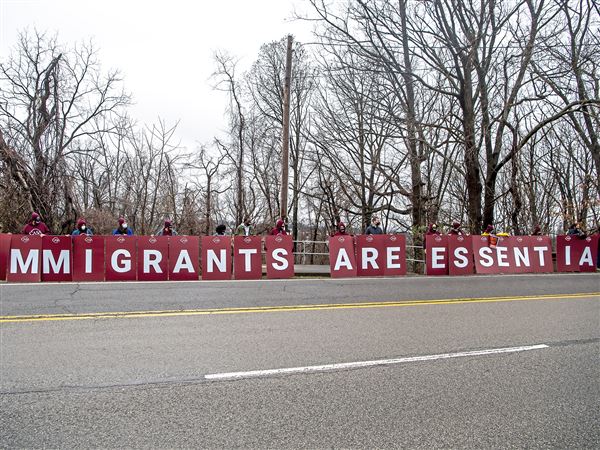HARRISBURG -- When a new open records bill sailed through the state Senate with unanimous approval this week, many legislators thought it would be a slam dunk in the House and quickly get to Gov. Ed Rendell.
But now questions have arisen about the bill, especially among some House Republicans. Also, Common Cause/Pennsylvania, the self-styled citizens' lobby, is urging changes before the House acts on it.
Senate Bill 1, the open records bill, was expected to come up for a vote in the House next week, but now that timetable seems in doubt.
"Unfortunately, Senate Bill 1 still contains several critical flaws,'' said Common Cause Executive Director Barry Kauffman. "We must insist that our lawmakers stick with the job until they get it right this time. We know they can do better."
He sees these problems:
• Unlike other state and local agencies, the Legislature itself would not be under the jurisdiction of the proposed new Office of Open Records, which would handle complaints from citizens or reporters trying to get information.
"The House and Senate would get to decide for themselves whether they are in compliance with the law," Mr. Kauffman said. If a record were denied, "A citizen's only recourse would be to file suit in the Commonwealth Court, an expensive and time-consuming process."
• He has doubts whether the Open Records Office would be "truly independent," since it would fall under the Department of Community and Economic Development, part of the governor's administration. Mr. Kauffman contended that DCED "is noted for being close with local government officials," meaning it might side with local government against citizens.
Mr. Kauffman said the Open Records Office should be moved to "a truly independent agency like the state Ethics Commission."
• He also claimed that Senate Bill 1 is too loose on the matter of state or local agencies charging "nuisance fees" for records, in effect "permitting them to financially prohibit access to regular citizens."
Other critics are unhappy that the new law doesn't keep autopsy records open, as they are under current law. But the Senate did make a change to the previous House version by keeping birthdays in records that can be released and allowing 911 recordings and transcripts to be made public in some circumstances.
Steve Miskin, an aide to House GOP leader Sam Smith of Punxsutawney, said there needs to be further discussion about which details in transcripts of 911 emergency calls should be released.
"Everyone supports a strong open records law," he said, "but if 911 transcripts contain personal information about a caller or victim, there are questions about releasing that.
"We want to make sure we get it right and balance of personal privacy vs. public information. In these days of identity theft, you don't want to make it easier for someone's identity to be stolen."
Mr. Miskin said he's sure a new open records bill eventually will pass both chambers, but it may not be next week.
Rep. John Maher, R-Upper St. Clair, also said a balance needs to be crafted between protecting constituents' personal information and going public with legitimate concerns.
While some constituent letters to the state legislators can be released, other e-mails and letters, dealing with personal problems and private issues, shouldn't be released, he said.
"When people write a letter to the governor or a legislator about a problem, they don't think they're writing a letter to the world," he said.
Better reviews of Senate Bill 1 are coming from another group that's been closely following the open records process, the Pennsylvania Newspaper Association.
"It's a substantial improvement over current law," said association official Deborah Musselman.
One important change is that the new law "reverses the presumption," meaning most records would, for the first time, be presumed to be open and available. Until now, most government records were presumed to be private and a citizen had to fight to get it released.
The PNA likes having a records office to hear appeals when information is denied. It will save citizens the expense of going to court, Ms. Musselman said. The bill also gives state and local agencies a relatively short time -- five days -- to release the information.
First Published: February 2, 2008, 5:00 a.m.















